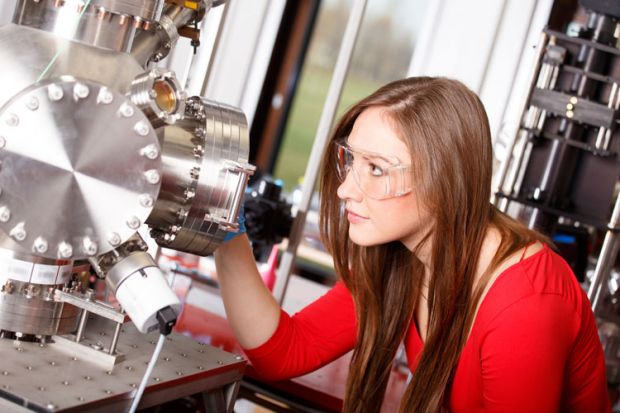The financial state of UK university chemistry and physics departments has improved, but the “substantial deficits” run by most make sustained public funding “vital”, according to a report.
The Royal Society of Chemistry and Institute of Physics report, published on 5 November, is based on 2012-13 data and updates a previous report based on 2007-08 data.
Looking at figures gathered from departments at 10 UK universities, it finds that financial deficits were 20.6 per cent of income on average in chemistry departments and 18.8 per cent on average in physics departments.
The report, The Finances of Chemistry and Physics Departments in UK Universities: Third Review, comes as the Westminster government works on its spending review, to be presented on 25 November. In England, teaching grant for high-cost subjects, or strategically important and vulnerable subjects (SIVS), is regarded as potentially being a target for cuts, while the Department for Business, Innovation and Skills will also have scrutinised the £4.6 billion UK-wide research budget as it seeks savings.
The report says that while there have been improvements in the finances of chemistry and physics departments since 2007-08, most “still run at substantial deficits in their main activities of teaching and research”.
The bulk of the deficit is attributable to research, says the report, which found one university with research income of £10.58 million against costs of £15.57 million – a deficit of 47 per cent of income.
While departments have made efficiency savings over the five years, these “have not been enough to significantly reduce the deficit so it is imperative that public investment in research is maintained and teaching income is protected”, says the report.
“The additional Hefce [Higher Education Funding Council for England] funding for SIVS is a vital income stream for these laboratory-based subjects. UK chemistry and physics departments make an essential contribution to society and the economy and must be maintained.”
The reliance of chemistry and physics departments on public sources of funding, in both teaching and research, makes them “particularly sensitive to changes in public funding regimes”, it adds.
后记
Print headline: Chemistry and physics units ‘deep in the red’




